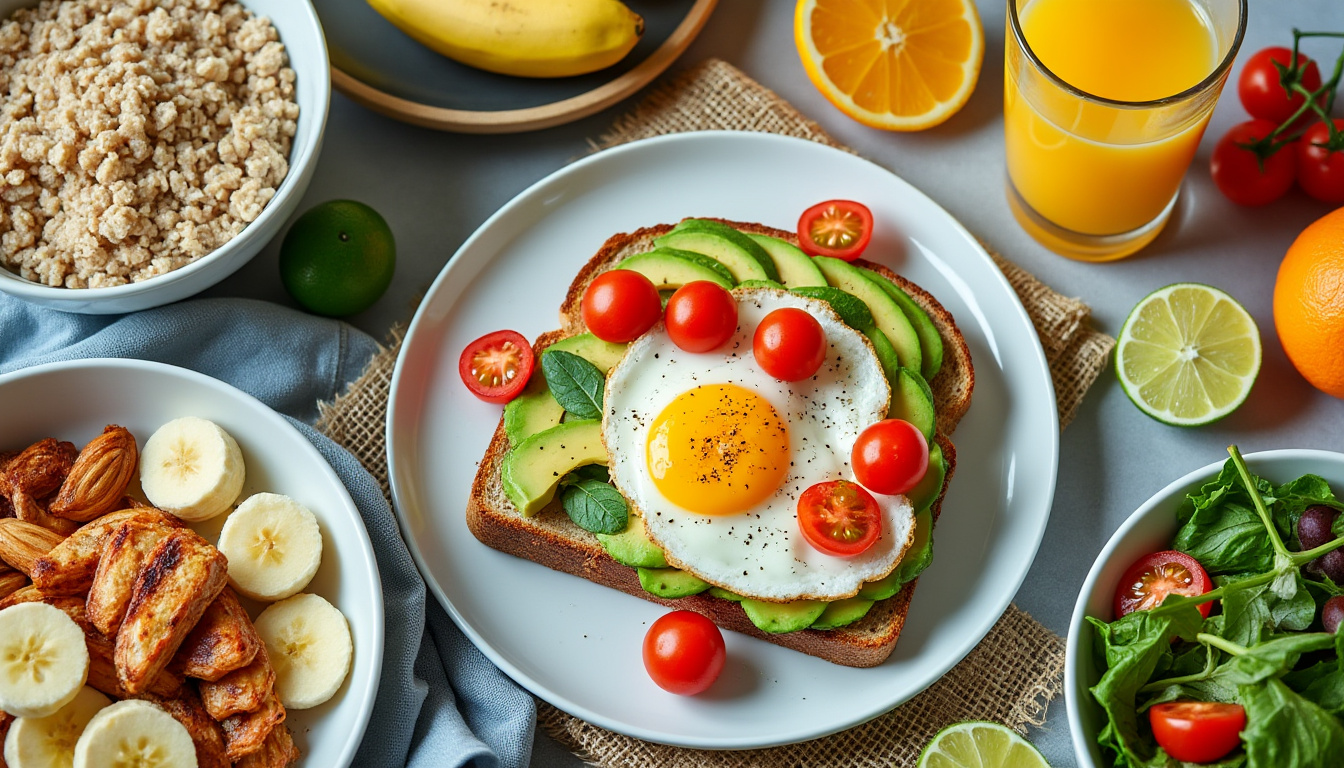As social media continues to play a central role in disseminating often unattainable beauty ideals, the “Skinny Tok” trend, especially on TikTok, raises concerns among health professionals. Influencers, in a quest for popularity and approval, promote alarming diets, often under 1000 calories per day. These behaviors raise questions about the mental and physical health of youth, particularly teenage girls, who are increasingly exposed to this social pressure. What lies behind this obsession with thinness, and what are the real impacts on health? Explore the different facets of this disturbing trend and its implications for the body image of younger generations.
The harmful influences of Skinny Tok on young women
The “Skinny Tok” phenomenon has taken TikTok by storm, attracting a multitude of young women, fascinated by the promise of an ideal body. Unfortunately, this trend echoes a time when the perception of beauty is increasingly tied to slenderness and extreme thinness. Videos illustrating drastic diets circulate widely, encouraging teenagers to adopt eating behaviors that can be harmful.

The messages conveyed by these influencers often take the form of sharp criticisms directed at those who do not meet their beauty standards, thus creating complexes that can affect the mental health of young people. For example, direct phrases like “You’re not ugly, you’re just fat” illustrate this insidious pressure that installs itself and causes considerable stress. Young girls, during a crucial period of development, vulnerable to external influences, often find themselves struggling with their self-esteem.
As a result, the “Skinny Tok” trend insinuates that personal value is inseparable from weight. In this context, it is essential to ask: what is the responsibility of social media in this dynamic? Studies show that approximately 70% of teenage girls report that social media influences how they perceive themselves. This reality raises concerns about the eating disorders that may arise from it.
The impact of low-calorie diets
The diets presented on “Skinny Tok,” often below 1000 kcal, are alarming. These dietary approaches do not take into account the enormous nutritional needs of young developing bodies. Indeed, such a low caloric intake is comparable to the basal metabolic rate of a person in a coma, highlighting the absurdity of these recommendations. Dr. Hugo Saoudi, a renowned psychiatrist, emphasizes that this situation can lead to various eating disorders (ED), such as anorexia and bulimia.
The long-term consequences of such a caloric deficit are numerous and serious. Here is an overview of the possible impacts:
- Muscle loss: severe caloric restriction leads to muscle degradation, essential for physical performance.
- Metabolic disorders: a weakened metabolism can lead to long-term weight gain.
- Decreased immunity: insufficient nutrient intake weakens the immune system, making individuals more vulnerable to diseases.
- Mental health issues: calorie deprivation can create psychological disorders, leading to anxiety and depression.
- Physiological consequences: organ failure, cardiac problems, and metabolic diseases can occur over time.
In reality, it is imperative to raise public awareness about these dangers. Instead of yielding to the illusion of a miracle solution for weight loss, young girls should be encouraged to adopt a balanced approach to their diet.
| Health problems related to extreme diets | Symptoms | Consequences |
|---|---|---|
| Muscle loss | Fatigue, weakness | Reduced physical capability |
| Hormonal disorders | Mood changes | Irregular periods, fertility issues |
| Cardiac problems | Palpitations, chest pain | Heart failure |
| Anxiety and depression | Increased emotional sensitivity | Social isolation, suicidal thoughts |
Given all these implications, it becomes necessary to propose healthy and viable alternatives for achieving weight loss goals, such as programs like Jenny Craig, Weight Watchers, and Nutrisystem, which encourage gradual and sustainable weight loss. Approaches like MyFitnessPal and Fitbit are also valued tools for tracking a balanced diet.
The role of parents in facing devastating content
Parents play a crucial role in protecting their children from the harmful influences of social media. However, the dialogue must be open and constructive. Instead of prohibiting, it is essential to explain and educate. Dr. Saoudi recommends engaging in conversations about what young people see online, especially on platforms like TikTok. This helps to grasp their feelings and assists them in developing critical thinking.

Many initiatives aim to strengthen parental support in this fight against unhealthy trends. Among them are raising awareness of resources such as helplines, notably anorexia bulimia info listening, and transparent discussions about the implications of restrictive diets. It is important to remind young people that they should feel safe enough to share their concerns about their body image or diet.
How to approach the subject with teenagers?
Here are some strategies to facilitate communication between parents and teenagers:
- Encourage dialogue: Ask open-ended questions to know their opinions on beauty and fitness.
- Educate about dangers: Inform your children about the consequences of extreme diets and unhealthy eating behaviors.
- Promote a positive body image: Encourage them to appreciate their body for what it is and to avoid comparing themselves to others.
- Encourage physical activities: Promote participation in sports as a healthy method to maintain physical and mental well-being.
- Create a healthy environment: Modify the family culture around food by avoiding negative talks about weight.
These approaches help build an environment conducive to personal growth, keeping young people away from the harmful ideals of “Skinny Tok.” This initiative is crucial for fostering a healthy and balanced generation.
The societal impacts of stereotypical beauty
Beauty ideals change over generations, but the social pressure they create remains constant. In the 90s, ultra-thin models ruled, while with the emergence of the body-positive movement, a new vision arose, advocating for the acceptance and respect of every body. However, the “Skinny Tok” trend represents an alarming regression.
Beauty is not a universal standard, and young people today must learn to navigate these norms. The proposed beauty ideals often condemn different bodies and encourage a culture of shame towards spectacular body shapes, thus becoming a fertile ground for developing eating disorders. This phenomenon is not isolated and affects society as a whole, where the cult of thinness is omnipresent.
The role of media and influencers
Influencers play a crucial role in creating and propagating these ideals. They exploit platforms like TikTok to influence a large audience, especially youth, without considering the ramifications of their advice. The algorithms of these social networks also favor the virality of disturbing content, reinforcing the cycle of misinformation about nutrition.
A study revealing that 13% of TikTok users report being negatively impacted by diet-related content on the platform highlights the scope of the issue. This reflection of society deserves to be analyzed to understand its causes and correct its devastating effects. Public figures now have the responsibility to promote a balanced view of health and well-being, aiming to counter the toxic discourse conveyed by trends like “Skinny Tok.”
In a world where prejudices about body and beauty continue to thrive, it is crucial to establish a discourse focused on body diversity. This involves sharing educational messages about different body types and valuing what enriches humanity.
| Age groups | Impact of social media | Proposed solutions |
|---|---|---|
| 13-16 years | Increase in body complexes | Media education, awareness workshops |
| 17-24 years | Anxiety and eating disorders | Support groups, individual therapy |
| 25 years and older | Social pressure and expectations | Group discussions, psychological consultations |
It is imperative that all actors in society, from parents to media professionals to educators, work together to eradicate these toxic stereotypes. The mental and physical health of young generations depends on it.
Towards a healthier and more enlightened nutritional approach
Faced with this alarming trend, it is essential to guide discussions towards healthier and balanced eating habits. Approaches like the Atkins, Dukan, or SlimFast diets offer alternatives that can be adapted to individual needs while respecting the necessary nutritional intakes. These programs take into account the importance of a varied diet for physical and psychological well-being.

Nutrition-focused platforms such as Nutrisystem aim to provide appropriate and well-documented advice to encourage a healthy lifestyle. Apps like MyFitnessPal and Fitbit also help users stay in line with their nutritional goals without falling into the trap of drastic caloric restriction.
Nutrition education and prevention
It is crucial to incorporate nutrition education from a young age to prevent eating disorders. Here are some measures to consider:
- Inclusion in schools: Development of educational programs on nutrition and health.
- Parent awareness: Organizing seminars to inform and train parents on balanced eating.
- Youth camps: Offering sports activities that emphasize health rather than appearance.
- Accessibility: Increasing access to healthy foods in sensitive communities.
Promoting a sustainable and enlightened approach to nutritional health can help reduce the harmful impacts of movements like “Skinny Tok.” Encouraging young generations to celebrate their bodies while striving to lead a healthy life is essential.
My name is Lucas, and I am a fitness coach specializing in sports and well-being. Passionate about fitness and health, I am here to guide you on your journey toward better physical shape and a healthier life. Together, we will reach your goals and help you exceed your limits!


